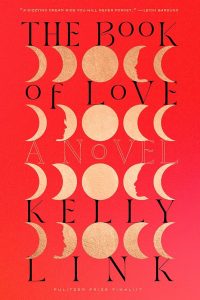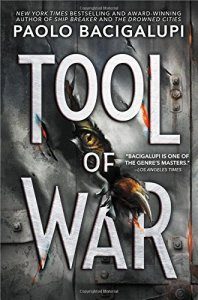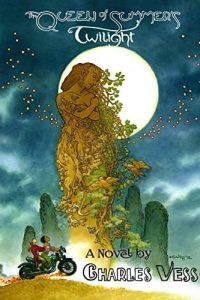Gary K. Wolfe Reviews The Book of Love by Kelly Link
 The Book of Love, Kelly Link (Random House 978-0-81299-658-6, $31.00, 640pp, hc) February 2024.
The Book of Love, Kelly Link (Random House 978-0-81299-658-6, $31.00, 640pp, hc) February 2024.
There are two things to be said up front about Kelly Link’s much-anticipated first novel. One is that it’s not what you’re expecting – although that’s pretty much what we do expect from any Kelly Link story – and the other is that there’s a reason why the title is The Book of Love rather than something like The Book of Ghosts and Goddesses, though both play significant roles in the story, as do various witches, shapechangers, and magical portals. For that matter, a good part of the narrative could have been called Magic for Beginners, since the mysteriously resurrected teens who are the main characters find themselves in possession of magical powers they don’t quite know what to do with, so naturally they get in trouble. Is it all an elaborate metafictional title scheme on Link’s part? Stranger things happen.
Okay, enough of that. The real reason this long but engrossing novel is titled The Book of Love, I suspect, is that like all good titles, it offers us a significant guidepost in how to approach the tale. Drawing on traditions from ghost stories, romance novels, coming-of-age tales, posthumous fantasies, horror, and epic fantasy (a familiar-sounding plot line involves trying to keep a powerful ring – or maybe a cup, or a coin – out of the hands of a malevolent goddess), it repeatedly circles back to considerations of the varieties and challenges of love. What that means, for readers expecting one of the many genre elements to take over and propel the plot in a simple, linear direction, is that the novel may seem almost leisurely in its first half, taking its time to develop the relationships between the limited number of main characters and to lay out in convincing and evocative prose the small Massachusetts town of Lovesend, which is the main setting. There are, rest assured, plenty of fireworks as the novel rapidly accelerates in its second half, including some stunning set pieces involving shapechanging, dueling magics, and a spectacular conjured temple, but the core of the novel remains its exploration not only of romantic attachments and rivalries, but the sometimes problematical love between siblings (particularly two sisters who seem to be always trying to out-snark each other), between parents or grandparents and children, between friends and allies, between teachers and students, between musical bandmates (the music allusions veer from Barry Manilow to John Cage), and perhaps most touchingly between an older brother and a young sister who died in childhood. All this is presented with Link’s characteristic incisiveness and wit – not to mention misdirection – in prose that can be simultaneously hilarious and haunting.
The story opens with an intriguing, if fairly straightforward, ghost-story mystery. A few days before Christmas 2014, three teenagers – Daniel, Mo, and Laura – find themselves in the classroom of their high school music teacher, Mr. Anabin, and learn that they had died nearly a year earlier, though their bodies were never found and no one seems to know or remember what happened. Their friends and family have been led to believe they were off in Ireland on a music scholarship, rather like being told your old dog is happily living on a farm upstate. Not too surprisingly, Mr. Anabin reveals himself to be not just a colorless music teacher, but rather an ancient figure whose partnership with the equally enigmatic Bogomil – who also shows up in the classroom – has much to do with why the kids were brought back in the first place, and with what is expected of them. Complicating matters further, the kids discover small physical differences from when they were alive, suggesting they’ve been imperfectly reconstituted, and an ominous, shapechanging figure named Bowie has somehow slipped back with them. Soon more supernatural figures are introduced, including murderous enemies who have chased each other across the centuries and, most importantly, a fearsome, malign goddess named Malo Mogge, whose quest for a long-lost magical amulet sets off many of those fireworks. (In a characteristically Linkian undercutting of pretension, though, Laura’s first reaction upon meeting her is ‘‘What kind of name was that? You might as well call yourself Bad Intention Reptile Shoes’’.)
As if to remind us that The Book of Love is centrally about its characters, Link begins each chapter with a heading like ‘‘The Book of Laura’’ or ‘‘The Book of Susannah’’ – Laura’s surviving sister and Daniel’s girlfriend. While there are something like 20 disparate viewpoints, most of the narrative is carried by the four principal characters, who turn out to be far more interesting than mere pawns in a cosmic struggle. Daniel faces unresolved issues with his stepfather (who has also returned after apparently abandoning the family) and his grief over a sister who died in childhood. Mo’s grandmother was a pioneering Black author of bestselling romance novels who helped reshape the town by sponsoring a series of statues celebrating accomplished Black women, while Laura and Susannah’s mother is a dedicated nurse at a local natal intensive care unit. As these characters develop their own tales, along with those of secondary figures like the owner of a popular local bar called the Cliff Hangar and a cook who works there, Lovesend begins to emerge as a vividly textured small-town community, balancing the tale’s more baroque elements – even as it grows increasingly evident, with all that magic flying around, that not all its residents are exactly real.
I suspect there will be some commentary about the length of The Book of Love, both because Link has made her reputation with precisely crafted shorter fiction and because decades of genre publishing have conditioned us to expect that any fat fantasy novel will offer vast panoramas, scores of characters, elaborate magic systems, epic battles, and clothes that are way better than our own. And indeed Link provides some dandy cosmic power struggles as a significant subtext to a novel which very nearly observes the classical unities of time and place, but she’s really not that interested in genre protocols. Considered simply as general fiction – which is how the novel seems to be marketed – the length and attention to detail of the novel begin to seem less unusual (recent novels by Jonathan Franzen and Barbara Kingsolver, for comparison, have clocked in at close to 600 pages each, and who noticed?). Link is not the first writer to note the sometimes hazy line between love stories and ghost or horror stories, but few have probed it in such rich detail, or with such wit. As a fantasy, The Book of Love may seem to take a while cashing in its genre chips, but simply as a novel, it’s haunting, immersive, and at times surpassingly beautiful.
Gary K. Wolfe is Emeritus Professor of Humanities at Roosevelt University and a reviewer for Locus magazine since 1991. His reviews have been collected in Soundings (BSFA Award 2006; Hugo nominee), Bearings (Hugo nominee 2011), and Sightings (2011), and his Evaporating Genres: Essays on Fantastic Literature (Wesleyan) received the Locus Award in 2012. Earlier books include The Known and the Unknown: The Iconography of Science Fiction (Eaton Award, 1981), Harlan Ellison: The Edge of Forever (with Ellen Weil, 2002), and David Lindsay (1982). For the Library of America, he edited American Science Fiction: Nine Classic Novels of the 1950s in 2012, with a similar set for the 1960s forthcoming. He has received the Pilgrim Award from the Science Fiction Research Association, the Distinguished Scholarship Award from the International Association for the Fantastic in the Arts, and a Special World Fantasy Award for criticism. His 24-lecture series How Great Science Fiction Works appeared from The Great Courses in 2016. He has received six Hugo nominations, two for his reviews collections and four for The Coode Street Podcast, which he has co-hosted with Jonathan Strahan for more than 300 episodes. He lives in Chicago.
This review and more like it in the December and January 2023 issue of Locus.
 While you are here, please take a moment to support Locus with a one-time or recurring donation. We rely on reader donations to keep the magazine and site going, and would like to keep the site paywall free, but WE NEED YOUR FINANCIAL SUPPORT to continue quality coverage of the science fiction and fantasy field.
While you are here, please take a moment to support Locus with a one-time or recurring donation. We rely on reader donations to keep the magazine and site going, and would like to keep the site paywall free, but WE NEED YOUR FINANCIAL SUPPORT to continue quality coverage of the science fiction and fantasy field.
©Locus Magazine. Copyrighted material may not be republished without permission of LSFF.







640 pp? Ay, chihuahua! Mines!